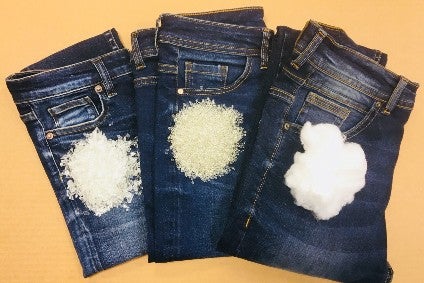
Performance fibre specialist The Lycra Company is launching an initiative that aims to raise more awareness amongst mills, brands and retailers, of the true impact of pre-consumer waste in fibres and how best to minimise this waste.
When referring to the percentage of pre-consumer recycled waste in a fabric, one might assume that the higher the percentage, the more sustainable the product, but this is not the case, according to The Lycra Company, and this can be confusing for consumers and those within the industry alike.
As such, the aim of the Less is More initiative is to clarify this and advocate a more holistic approach in fibre and fabric manufacturing.
“Often consumer demand drives purchasing decisions, but it is up to the industry to provide the right products,” says Jean Hegedus, The Lycra Company’s sustainability director. “Therefore, our goal is to reach as many key decision makers within the industry, particularly in product development and sourcing, to ensure customers understand the true impact of pre-consumer material and how to best minimise waste.”
In 2019, Lycra launched EcoMade fibre, its first branded elastane made with 20% pre-consumer recycled content. The company says it is often challenged on why the content is just 20% and not higher.
“With pre-consumer content, the most sustainable option of all is to make the least amount of waste as possible,” it explains. “A fibre that is made, and then re-made actually has a higher environmental impact than a fibre that is made only once because you are using additional energy to re-make it.”
Hegedus believes that while the issue is about material recycled from waste in factories, it is still important consumers understand the process.
“If we want our apparel industry to become truly sustainable, we need to consider every step of the garment’s journey. Consumer demand and buying trends help to shape the fibre specifications required by brands and garment manufacturers. If those specifying do not understand the entire life cycle of the product, it would be easy to assume that a higher percentage pre-consumer waste is better for the environment and specify this as a requirement.
“Unfortunately, in the long run, this would actually be detrimental as it would in fact discourage some manufacturers to address their manufacturing practices. What we need to do is rate the overall sustainability of a garment, not just one aspect of it.”
Hegedus says the industry needs to look at the entire footprint of the garment and integrate traceability and transparency at all stages. This then needs to be packaged in a “simple, digestible format for the consumer”.



